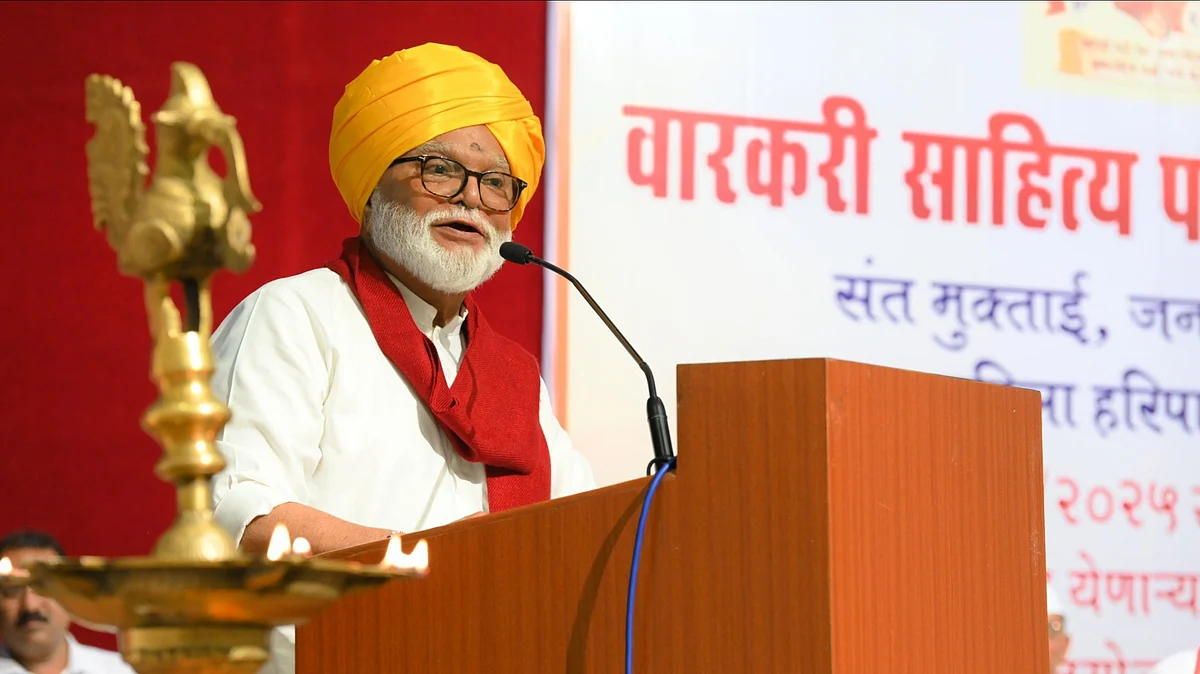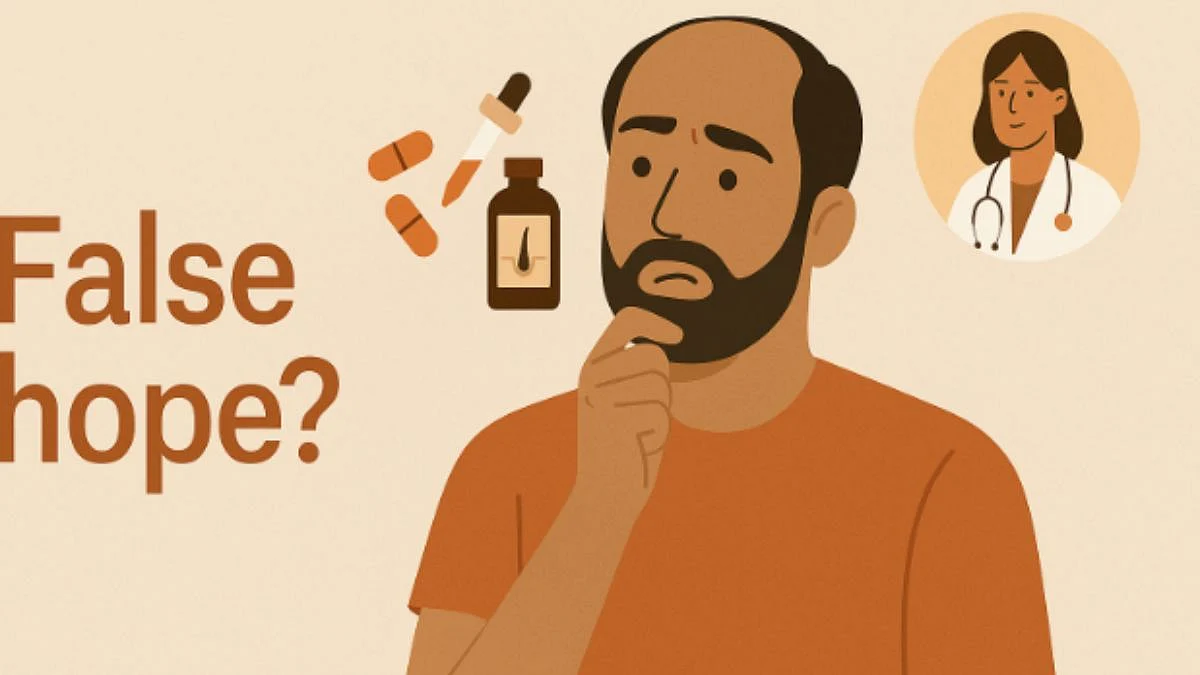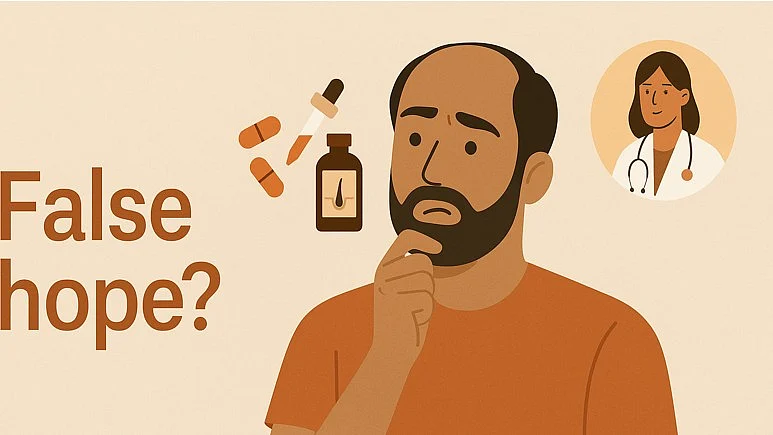Hair fall is one of those problems that sneak up on you - until it doesn’t. One day it’s a few extra strands in the comb. A few weeks later, it’s a widening part line, a thinning crown, and the sinking feeling that this might not be temporary.
In that emotional mix of panic and problem-solving, you’ll likely stumble across Traya Health - a fast-growing brand that promises not just to treat hair fall, but to treat you. Their model is pitched as a combination of Ayurveda, dermatology, and nutrition - with personalized plans designed by doctors.
The brand’s claim is bold: Don’t just hope. Believe.
But the question remains - does Traya really work? Or is this just another case of great branding outpacing results?
We did a deep dive into how Traya functions, what the science says, and what actual users are reporting - so you don’t have to guess.
Unlike typical hair care brands that offer serums, oils, or DHT blockers, Traya isn’t trying to sell a single solution. Instead, they position themselves as a health-tech platform that treats hair fall as a symptom of deeper systemic imbalances.
The first step in their process is a diagnostic quiz - a 30–40 question form covering hair symptoms, digestion, stress, hormonal cycles (for women), sleep, family history, and medical background. Based on this, a doctor panel - an Ayurvedic expert, a dermatologist, and a nutritionist - evaluates your case and designs a custom plan.
The plan may include:
Herbal supplements to regulate gut health, pitta levels, or insulin resistance
Nutraceuticals like Vitamin D3, B-complex, iron, and marine collagen
Dermatological topicals - including prescription Minoxidil or ketoconazole-based serums
A routine and follow-up loop spanning 4 to 6+ months
This isn’t a superficial hair care kit. It’s a treatment system - and it demands structure.
Traya’s model is based on a core truth: most hair loss isn’t just about the scalp. It’s a downstream result of stress, inflammation, poor nutrient absorption, hormonal disruptions, or metabolic imbalance.
Let’s break down the three pillars of their approach:
Ayurveda
Ayurveda doesn’t treat symptoms - it treats dosha imbalance. Elevated pitta, weak agni, and compromised liver function are all seen as triggers for hair fall. Many users with digestive issues report that Traya’s Ayurvedic component - including herbs like Triphala, Amla, Brahmi - helped normalize their gut, indirectly improving hair health.
Nutrition
Hair follicles are highly sensitive to nutrient supply. Deficiencies in Vitamin D, iron, zinc, or protein can severely disrupt the hair growth cycle. Traya includes medical-grade nutraceuticals to address these - particularly in cases where poor absorption or dietary gaps exist.
Dermatology
Minoxidil remains one of the most clinically validated treatments for androgenetic alopecia. Traya includes it in some plans, often coupled with anti-fungal or anti-inflammatory agents to treat scalp buildup or inflammation that might prevent regrowth.
Together, this forms a layered intervention - where no single element is expected to carry the result alone.
From publicly available reviews, YouTube testimonials, and Reddit threads, here’s the broad pattern that emerged:
Most users didn’t report hair regrowth in this phase - and that’s by design. The first few weeks focus on internal corrections. Users with bloating, irregular bowel movements, fatigue, or acne often see improvements here. Hair fall may reduce slightly by end of Month 2.
This is when hair fall tends to slow meaningfully. The volume of hair left in brushes and shower drains drops. For many, scalp flakiness or itchiness also reduces. Texture often becomes softer or more resilient.
Users with early-stage thinning - especially around the crown or temples - begin to see baby hairs. Some report fuller ponytails or reduced scalp visibility. Friends or barbers often notice before the users themselves.
“I didn’t notice the regrowth until my hairstylist pointed it out. That’s when I knew it wasn’t a placebo,” said one reviewer on a Reddit AMA.
Traya’s treatment seems to work well in users with:
Stress-related hair fall, particularly post-COVID, burnout, or poor sleep
Digestive imbalances, including IBS, bloating, and acidity
Hormonal conditions, especially PCOS or thyroid irregularities
Nutritional deficiencies, confirmed or suspected
Early to moderate androgenetic alopecia, where follicles are still alive
However, Traya is unlikely to show results if:
Hair loss has progressed to advanced baldness (Norwood scale 5+)
Users are inconsistent with the plan - skipping tablets or topicals
The issue is autoimmune or scarring alopecia, which requires a separate medical path
There’s an expectation of quick results (under 2 months)
Across over 150 reviews analysed, here are recurring themes:
Transparency in communication
Detailed, doctor-led plans
Gradual but noticeable improvement
Realisation of broader health issues linked to hair
Better scalp condition and reduced shedding
Multiple tablets per day can feel overwhelming
Delays in kit delivery (especially during high-volume periods)
Requires strong discipline - this isn’t for casual users
Initial results take time - and that frustrates some users early on
Importantly, very few users called the product “fake”. The complaints were largely about logistics or complexity - not the validity of the science.
If you’re looking for a direct answer: Yes, for the right person, followed correctly, over the right timeframe - Traya works.
But it’s not a plug-and-play solution. It’s a system. It requires:
Time (minimum 5–6 months)
Effort (pills, topicals, food changes)
Patience (progress is layered and often invisible at first)
What makes Traya unique is not just its formulation - but its philosophy. It views hair loss as a symptom, not a condition. And it builds a protocol accordingly.
For users who’ve tried cosmetic fixes without results - and are now ready to treat their hair like a health issue - Traya appears to be a well-structured, medically grounded alternative.











